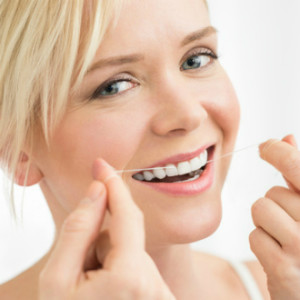Prevent Dental Emergencies with Good Oral Hygiene

Oral hygiene is the practice of keeping the mouth and teeth clean to prevent dental problems like dental cavities, gingivitis, periodontal (gum) diseases and bad breath.
Good oral hygiene is also required for oral pathologic conditions such as healing and regeneration of oral tissues. These conditions include gingivitis, periodontitis, and dental trauma, such as subluxation, oral cysts, and following wisdom tooth extraction.
Different Aspects of Oral Hygiene
Regular Scheduled Dentist Visits – The best way of preventing serious dental conditions and emergencies is to schedule appointments with your dentist every six months.
During these appointments, your dentist will carefully check your teeth to ensure they are in good condition, give your teeth a professional clean and descale, and recommend any treatment required for great oral health.
Teeth Cleaning – Teeth cleaning is the removal of dental plaque and tartar from teeth to prevent cavities, gingivitis, gum disease, and tooth decay. Severe gum disease causes at least one-third of adult tooth loss.
Tooth decay is the most common global disease. Over 80% of cavities occur inside fissures in teeth where brushing cannot reach food left trapped after every meal or snack and saliva or fluoride has no access to neutralise acid and remineralise demineralised teeth, unlike easy-to-clean parts of the tooth, where fewer cavities occur.
Removing Plaque – Plaque is a yellow sticky film that forms on the teeth and gums and can be seen at gum margins of teeth with disclosing tablets. The bacteria in plaque convert carbohydrates in food (such as sugar) into acid that can demineralise teeth, eventually causing cavities. Daily brushing and flossing removes plaque.
Plaque can also cause inflammation of the gum, making it red, tender and causing bleeding when flossing or brushing your teeth. If this is not treated, bones around the teeth can be affected by the various inflammatory factors, eventually leading to periodontitis. If not treated, the loss of bone structure may cause teeth to become mobile.
The treatment is to remove plaque inside the deep pockets between the tooth surface and the soft tissues using specialises dental equipment. If the treatment is successful, the gum will pull away from the teeth as a result of the cessation of the inflammatory swelling.
Flossing – The use of dental floss is an important element of oral hygiene since it removes plaque and decaying food remaining stuck between the teeth. This food decay and plaque cause irritation to the gums, allowing the gum tissue to bleed more easily. Acidic foods left on the teeth can also demineralise teeth, and eventually cause cavities.
Flossing is recommended at least once per day, preferably before brushing so fluoride toothpaste has better access between teeth to help remineralise teeth, prevent receding gums, gum disease, and cavities on the surfaces between the teeth.
Oral irrigation – Some dental professionals recommend oral irrigation as a way to clean teeth and gums. Oral irrigators reach 3–4 mm under the gum line. Oral irrigators use a pressured, directed stream of water to disrupt plaque and bacteria.
Call James Peter Dentist today and we can help you maintain fantastic oral health and have a healthy, happy smile!
